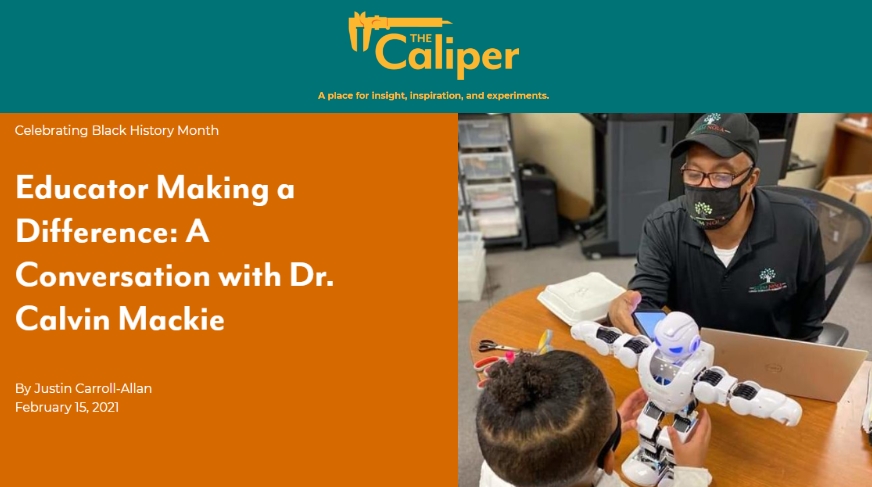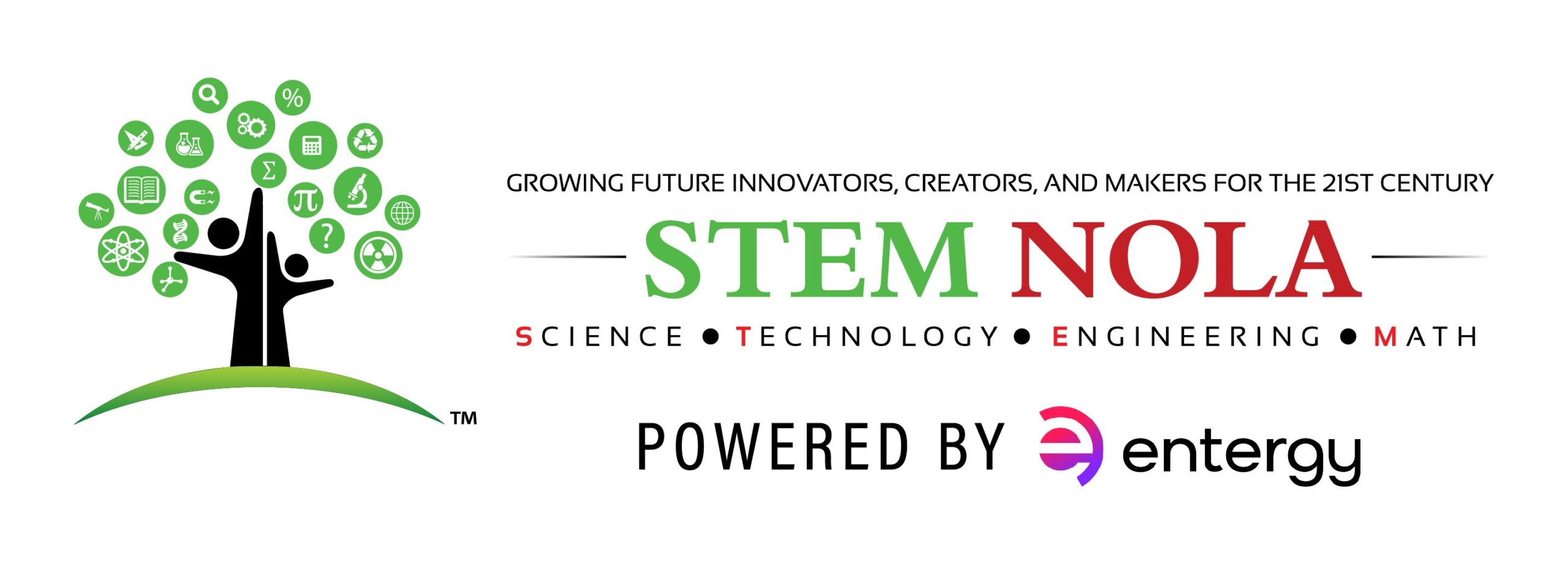
Dr. Calvin Mackie understands the opportunity an education can afford historically underserved youth. One day when he was young and helping his father, who was a roofer in New Orleans, his dad said, “See those people in suits coming in and out of this building? If you stay in school, you could be one of those people.”
This advice stuck with Mackie and led him to become the first Black tenured engineering professor at Tulane University. Later he founded STEM NOLA, a non-profit organization dedicated to bringing together quality leaders in STEM to form a “cradle to career” alliance working to improve educational and career outcomes as part of a shared community vision.
We recently had the opportunity to sit down with Mackie and hear a little about his story.
What were your inspirations for going into engineering and for becoming a teacher? What challenges did you encounter and how did you overcome them?
To be a roofer you had to be good at mathematics skills, which I saw from my father. Then my uncle bought me an Erector Set, and I made a car. My uncle said “you are going to be an engineer,” and that was the first time I heard that word. It stuck.
I started college in remedial reading and math and was told I wasn’t college material, but I had some amazing teachers who believed in me, including Dr. Carolyn Meyers from Georgia Tech who got me interested in teaching. It still amazes me that a boy from “back of town” New Orleans made it all the way “uptown” to teach. It was my education that afforded me this opportunity.
You ask students to fill their heads with knowledge as a way to help themselves. Can you provide some pointers on how they could go about it?
I tell my kids they are either going to make something or break something, and if we don’t teach them how to make something or give them the skills to pay the bills then they are going to be a burden on society. We have to help kids find their place in the world.
I always tell kids to find their interest and pursue it and to acquire skills such as collaboration, communication, critical thinking, creativity, and community that will prepare them for work in the future.
You mentioned that Hurricane Katrina was the worst engineering disaster in American history. Do you have any thoughts on what teachers can do to help their students understand and deal with this and other disasters?
Hurricane Katrina and now COVID-19 are great teachers. Scientists, engineers, and mathematicians see these events as a huge laboratory to teach about science, politics, sociology, and more. Teachers have an amazing opportunity to use these events to talk about why we as scientists do what we do.
Right now the entire world is waiting for science to solve the pandemic. The importance of filling the scientist and teacher pipeline is played out in the differences behind a research PhD and a medical doctor. The PhD is at the beginning of the line and the medical doctor is at the end of the line—PhDs teach the medical doctor what he or she needs to know, and medical doctors wait for the PhDs to provide solutions so they can apply those solutions to the public.
You started STEM NOLA. What was your inspiration and what has the organization accomplished to date? Do you have any suggestions for what educators around the country could do on a small scale to replicate your successes?
I have two sons and one day my 3rd grader came home and said “I don’t like science anymore.” When I asked him why, he said, “My teacher was just writing on the board and not doing anything hands on.” So I started ordering technology from Vernier and doing hands-on STEM activities in our garage. When my son started getting As and his friends were not, he realized he was exposed to something and that if his friends were exposed to it too, they would be just as smart as he was. When he brought this to me, I realized I was keeping my knowledge and time to myself and decided I wanted to marshal the resources and people to give kids exposure to hands-on science who might not get it otherwise.
My advice to others is to be intentionally consistent, meet kids where they are, and take advantage of the knowledge in the community around you. When we put on a hands-on science event, we go out into the community, and we bring in the technology and the people from the economic drivers in a community to help us. We develop STEM modules that relate to these economic drivers as a way to interest kids in the types of jobs in their communities. Because of COVID-19, we are offering everything online and shipping kits out into communities. We have created a STEM ecosystem model that is scalable, reproducible, and sustainable. We are also rolling it out into other communities around the country. Now kids in many more locations can register to participate by visiting our website https://www.stemnola.com/.
